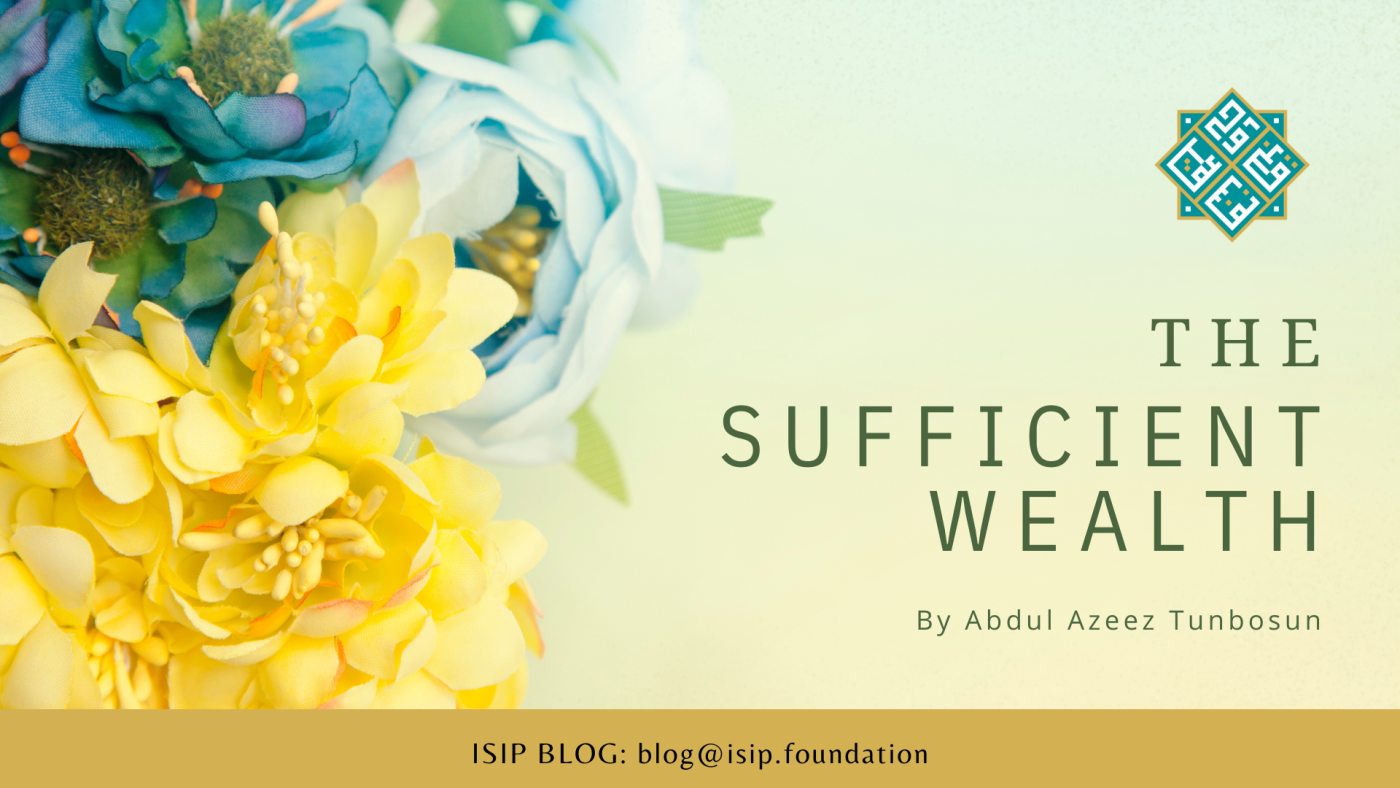
By Abdul Azeez Tunbosun
According to a popular saying: “The best form of wealth is “peace of mind”. Conventionally, wealth is understood to mean a possession, in abundance, of (physical) things that are valuable to human beings in relation to time or era, as in, a luxurious car in the 1960s will be scrapped in 2023. But “peace of mind” is an abstract matter, we need to make sense of it in relation to physical wealth and what makes it the best of wealth to be sought out for,
In Arabic, the word PEACE means SALAM, derived from the root S-L-M – pronounced Sin-Lam-Mim, which literally translates as whole or safe. Morphologically, it also serves as the root word for a number of other terms, all closely related in meaning. For example, when a person accepts Islam, he/she has submitted (to their faith), not seeking any conflict with Allah (the source of Peace).
From the Islamic perspective, the mind is aql, the seat of intelligence. Humans are basically composed of two aspects: the body and the spirit. The body is the ‘riding animal’ for the spirit (ruh). The essential reality of the human lies in the spirit, also termed nafs “soul”, qalb “heart”, or ‘aql “mind-intelligence”. Because, according to Imam Ghazali, they all coincide in Higher meaning (interaction with the higher self) and differ in lower meanings (interaction with the lower self). Based on these etymologies, someone who truly has “peace of mind” is a person whose soul, heart, or aql is whole and/or safe (in or with Allah). How wealthy a person is of “peace of mind” relies on his/her level of submission to Allah as depicted in the hadith of Gabriel, the Prophet (saw) designated three degrees of the religion. The base is Islam, the middle is Iman (faith) and the pinnacle is excellence (ihsan). When you have Islam, you are a Muslim, when you have Iman, you are a Mu’min, when you have Ihsan, you are a Muhsin. Islam is the prerequisite for these levels. In reference to the hadith of Gabriel, Ihsan is to worship God as if you see Him…
To gauge the level of peace your mind possesses will be determined by how you respond or react to external factors. The Prophet, who is our excellent teacher, never leaves the most important lesson untouched, he said in one of his hadith: “How wonderful is the affair of the believer, for his affairs are all good, and this applies to no one but the BELIEVER. If something good happens to him, he is thankful for it and that is good for him. If something bad happens to him, he bears it with patience and that is good for him.” When we perceive the things happening to us in positive or negative, good or bad (relative to our desires and pleasures of life), it should not be a question of why me but how perfect my response to those occurrences is. Allah says (Surat al-Andkaboot 29:2): “Do people think that they will be left alone because they said, “we believe”, and will not be tested?
In the exemplary life of the Prophet, we see numerous incidents teaching us how to be dynamic and resolute in our trust in Allah. His journey to and the agony he faced at Ta’if, would always bring tears to the eyes of the believers, he was stoned and beaten to blood but how he handled the incident taught us a great lesson and a display of his untainted resolve in Allah. It was there that the Angel Gabriel came to him with the Angel of the Mountains and said that if Muhammad wanted, he would blow the mountains over the people of Ta’if (or crush the people of Ta’if in between the mountains). How did he respond to this request?
The Prophet prayed: “O Allah! I complain to You of my weakness, my scarcity of resources, and the humiliation I have been subjected to by the people. O Most Merciful of those who are merciful. O Lord of the weak and my Lord too. To whom have you entrusted me? To a distant person who receives me with hostility? Or to an enemy to whom you have granted authority over my affair? So long as You are not angry with me, I do not care. Your favour is of a more expansive relief to me. I seek refuge in the light of Your Face by which all darkness is dispelled and every affair of this world and the next is set right, lest Your anger or Your displeasure descends upon me. I desire Your pleasure and satisfaction until You are pleased. There is no power and no might except by You.”
Despite this pain and while nursing the wound, he did not abandon his assignment when the opportunity was presented to him, when the Christian slave named Addas from Nineveh was asked to give a tray of grapes to the exhausted Prophet in the garden he was resting, The Prophet took the grape and before putting it into his mouth he recited “In the name of God, Ever Gracious, Most Merciful.” Addas became curious and inquired about the identity of Muhammad who presented himself. The conversation that ensued led Addas to declare his acceptance of Islam. This shows that our greatness lies in congruence with Allah.
Peace of mind is an all-encompassing wealth defining the wholesomeness of human beings in relation to/or in identifying with Allah, not a temporary attachment to a state or condition. Tawbah (repentance) and Istighfar (seeking forgiveness) act as the shock absorbers every time we sin, providing that spring to return back to Allah, because we will always slip.
O Allah, You are peace, peace comes from You. Blessed are You O Possessor of Glory and Honour.

Helpful material
Mash Allah, a great reflection on the blessing of rizq that is faith.
Insightful and well presented. Masha Allah
Salaam!